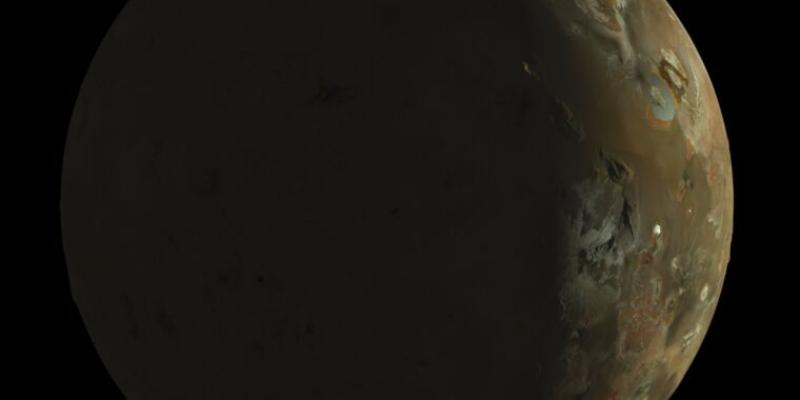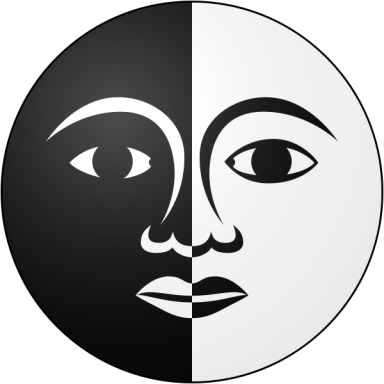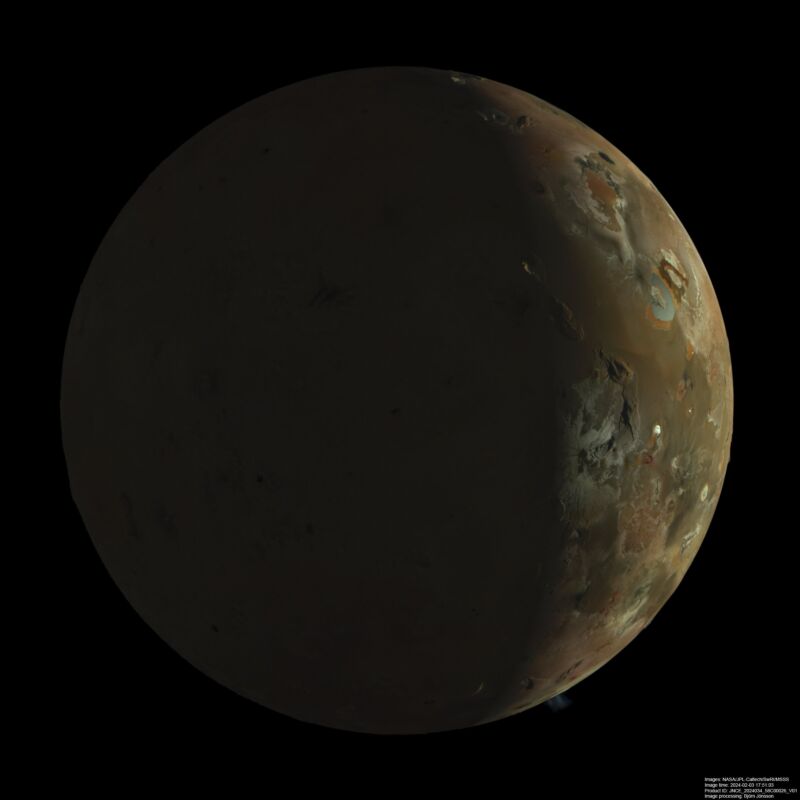Daily Telescope: A stunning new image of Io reveals a volcanic plume | Ars Technica
Category: Health, Science & Technology
Via: outis • last year • 8 commentsBy: SciGuySpace (Ars Technica)



The average distance to Jupiter is 44 million Miles.

There is a little too much darkness in this world and not enough light, a little too much pseudoscience and not enough science. We'll let other publications offer you a daily horoscope. At Ars Technica, we're going to take a different route, finding inspiration from very real images of a universe that is filled with stars and wonder.

Good morning. It's February 6, and today's image reveals the Jovian moon Io in a revelatory new light.
Over the weekend the operators of NASA's Juno spacecraft released a new batch of images showcasing a February 3 flyby of Io, the volcanically active moon orbiting Jupiter. Io, if you didn't know, is the most volcanically active world known to humans.
As part of its mission to closely study Jupiter, Juno has also been making periodic flybys of some of the gas giant's more intriguing moons. NASA then invites members of the public to process the raw images to tease out details.
Bjorn Jonsson has done just that for the most recent flyby of Io, producing the amazing image in this post. Of his work, Jonsson says, "The small, bright features are specular reflections from features that normally appear dark (volcanic glass?). A plume is visible at lower right, it's been brightened rel to other parts of the image & is heavily processed. North is up."
The plume is magical.





Puff the Magic Dragon
I'm more used to this ''Puff the Magic Dragon''.
You'll like this.
Ha, good one.
The Puff's saved my ass a couple of times.
Nice image! I would have thought humans would be more curious about space than we have been.
Beautiful image, hope to see more of them.
Very cool!
Which is just about the most brilliant thing NASA could do. Now if only public education would get on board with such an effort rather than emphasizing politically correct memes. They should be pouring their efforts into STEM subjects, not preferred pronouns.